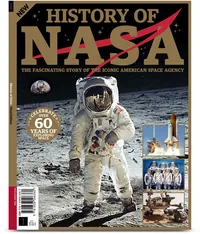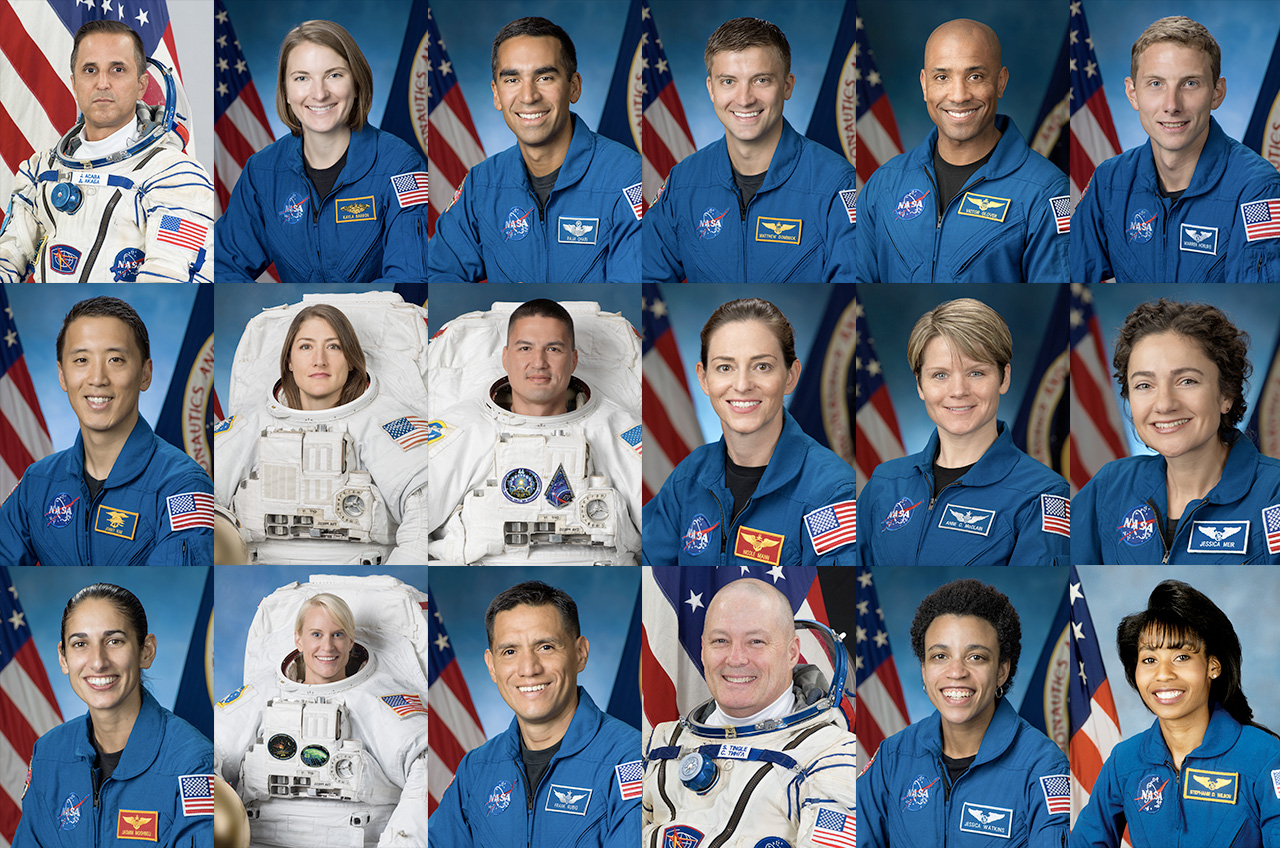US still committed to landing Artemis astronauts on the moon, White House says
But whether NASA's 2024 moon landing goal still holds remains to be seen.
The Biden administration's crucial first 100 days in office now includes a big human spaceflight pledge.
White House Press Secretary Jen Psaki said Thursday (Feb. 4) that President Joe Biden will carry on the Artemis program to land humans on the moon in the coming years. Artemis began under Biden's predecessor, then-President Donald Trump.
"Through the Artemis program, the United States government will work with industry and international partners to send astronauts to the surface of the moon — another man and a woman to the moon," Psaki told reporters in a White House press briefing Thursday.
"Certainly, we support this effort and endeavor," she added.
Related: Presidential visions for space exploration — from Ike to Biden
History of NASA: $22.99 at Magazines Direct
Discover the story of how and why NASA was created, its greatest triumphs, darkest days, and of the times it exceeded all possible hopes. A tale of adventure, heroism and resourcefulness, learn of the space agency's greatest achievements and how — over six decades — the organization has consistently and tirelessly devoted itself to its founding principle: that "activities in space should be devoted to peaceful purposes for the benefit of all humankind".
Psaki's comments, which were in answer to a reporter's question, did not mention NASA's 2024 target for the first crewed Artemis moon landing, a deadline set by the Trump administration. Last year, a bipartisan effort in the U.S. House of Representatives sought to push that landing mission to 2028 instead, in line with NASA's previous goals.
NASA ended up sticking with the 2024 deadline for the time being, but this year there is a new U.S. president as well as a new acting NASA administrator, Steve Jurczyk, who took the agency's reins just two weeks ago.
Breaking space news, the latest updates on rocket launches, skywatching events and more!
As Psaki noted, NASA intends to accomplish its Artemis goals with the help of industry and international partners, including the European Space Agency and Canadian Space Agency. In her comments, she also mentioned NASA's aims of producing new science in the effort.
Psaki's reference to "another man and a woman" on the moon echoes language often used by former NASA chief Jim Bridenstine at media events in the past few years.
All 12 people who walked on the moon during NASA's Apollo program between 1969 and 1972 were men. "The Artemis program, a waypoint to Mars, provides exactly the opportunity to add numbers to that," Psaki noted of the number of moonwalkers. (NASA views Artemis as a steppingstone toward crewed Red Planet missions, which the agency aims to start flying in the 2030s.) "Lunar exploration has broad and bicameral support in Congress."
In December, before Biden took office, NASA named an "Artemis team" of 18 astronauts who are eligible for flight assignments, including the Artemis 2 flight around the moon that's currently scheduled for 2023, the Artemis 3 landing mission slated for 2024, and future opportunities in Artemis. (Artemis 1, which is scheduled to launch late this year, will be an uncrewed test flight around the moon.)
NASA astronaut Anne McClain, a member of the Artemis team, said of Psaki's words on Twitter: "We'll be ready."
Related: What is NASA's Artemis Program?
We’ll be ready. https://t.co/YbZDcxBCnSFebruary 4, 2021
The Trump administration announced its 2024 moon-landing goal in March 2019, with then-Vice President Mike Pence stressing that a swift landing was required because the U.S. is in a "space race" with China and Russia. His words echoed what historians sometimes call the 1960s-era "space race," when NASA and the Soviet Union sent the first few human missions to space.
In July 2019, four months after the 2024 deadline announcement, NASA saw a major shakeup of its human spaceflight leadership to — in Bridenstine's words at the time — address cost and schedule issues with Artemis.
"We're moving to a new era in human spaceflight where the administration is interested in going fast, we're interested in doing things in a different way, and I believed it was important to have new leadership at the top of the Human Exploration and Operations Mission Directorate," Bridenstine said in July 2019. "I just thought it was important to make this decision, make this change at this time."
A few days after the leadership reorganization, Bridenstine told Space.com that safety would be paramount even with the acceleration. "Just know, in no way does NASA intend to mitigate safety at all when it comes to meeting the objective," he said. "I want to get that back to a day where we have realistic cost and schedule plans and we meet those plans."
Yet the 2024 deadline still put pressure on NASA to ready numerous major systems — not least the Space Launch System rocket, still undergoing delayed final testing this month ahead of its shipment to Florida for the Artemis 1 mission later this year.
The agency also tried to finish components such as spacesuits and human landers safely but swiftly to reduce political risk in waiting, Bridenstine stressed repeatedly when he was administrator. Late in his tenure, Bridenstine said full funding for NASA's human landing systems would be "needed to achieve a 2024 moon landing," and meeting that goal would become "more and more difficult" with less money. Congress ultimately allotted less than NASA's request in a 2021 spending bill.
Prior to the 2024 moon-landing deadline announcement, NASA had planned a 2028 lunar landing effort in line with the moon-oriented Space Policy Directive 1, which President Donald Trump signed in December 2017. But "that's just not good enough," Pence said during the fifth meeting of the National Space Council in March 2019, when announcing the 2024 deadline. "We're better than that."
Follow Elizabeth Howell on Twitter @howellspace. Follow us on Twitter @Spacedotcom and on Facebook.

Elizabeth Howell (she/her), Ph.D., was a staff writer in the spaceflight channel between 2022 and 2024 specializing in Canadian space news. She was contributing writer for Space.com for 10 years from 2012 to 2024. Elizabeth's reporting includes multiple exclusives with the White House, leading world coverage about a lost-and-found space tomato on the International Space Station, witnessing five human spaceflight launches on two continents, flying parabolic, working inside a spacesuit, and participating in a simulated Mars mission. Her latest book, "Why Am I Taller?" (ECW Press, 2022) is co-written with astronaut Dave Williams.


